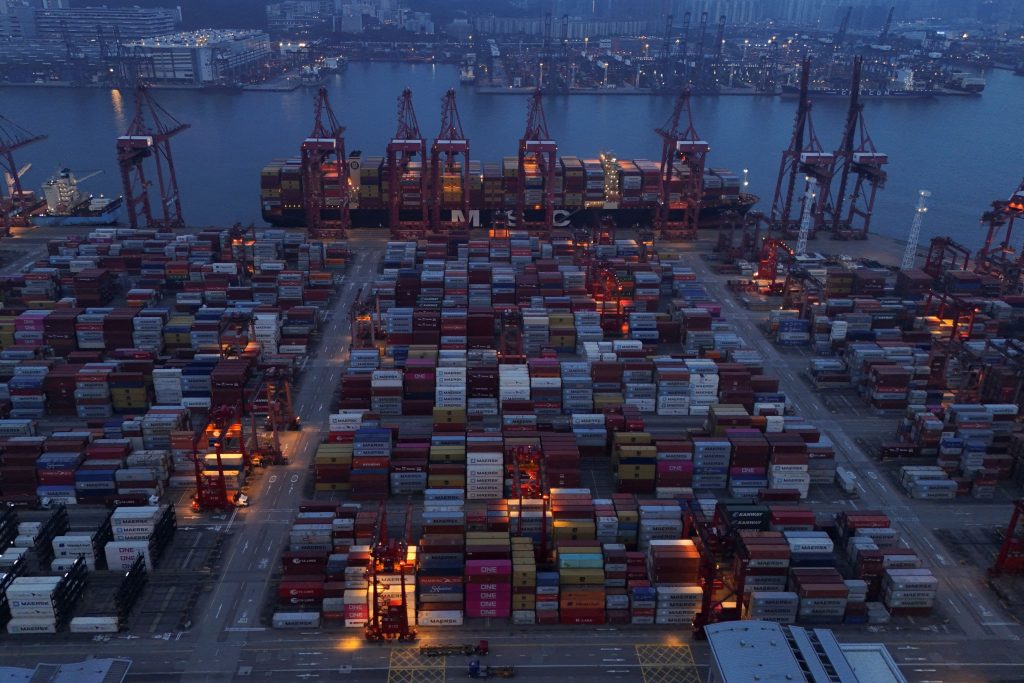TOKYO—Japan is set to get a new leader this fall after Prime Minister Fumio Kishida said Wednesday he wouldn’t seek to stay in office.
Kishida, 67, has bolstered relations with the U.S. and South Korea during his three years in office, and under his leadership Japan is nearly doubling its military spending to counter the growing threat from China. But at home, his popularity was hit by a political-funds scandal involving ruling-party heavyweights and relatively high inflation .
At a news conference, Kishida said he wouldn’t seek re-election as leader of the ruling Liberal Democratic Party in an election set for September. Traditionally, the LDP leader concurrently holds the position of prime minister, or head of government. Once the party picks its new leader, it is expected to use its control of Parliament to make that person prime minister.
“We must show to the people the face of an LDP that is changing, that is born anew,” Kishida said. He said the best way to do so was for him to step down.
None of the leading candidates to succeed Kishida is likely to fundamentally change Japan’s basic policies, including its military alliance with the U.S. and its recent defense buildup. But the new leader might help the LDP improve its prospects in national elections next year.
Japan is one of many major democracies where post-Covid blues and economic disruption have left voters unhappy. President Biden has been relatively unpopular for most of his term, the U.K. just had its first change of parliamentary control in 14 years and a coalition of leftist parties won more seats than President Emmanuel Macron ’s party in French elections .
The race to succeed Kishida is wide open. Several veteran lawmakers are seen as potential candidates including digital minister Taro Kono , 61, known for his battle against 20 undefined -century technologies such as the fax machine and floppy disk.
Some in the party say it is time for a younger candidate such as Shinjiro Koizumi , 43, son of a popular former prime minister, or Takayuki Kobayashi , 49, a former minister of economic security.
U.S. Ambassador to Japan Rahm Emanuel said the hallmark of Kishida’s term was the web of partnerships that emerged in the Asia-Pacific region to counter China’s rise, including Tokyo’s closer ties to South Korea after the two neighbors largely shelved historical grievances. Kishida and Biden have often met together with leaders of the Philippines, Australia, India and others.
“All future leaders of the United States and Japan will work off of that music sheet,” Emanuel said in an interview.
Japan’s shaky economy has hurt Kishida’s support.
In January 2023, overall inflation hit 4.3%, the highest monthly figure since 1981. Although that was well below the peak in the U.S. and inflation has eased since then, many consumers have felt the pain of higher prices of imported food and fuel. The weak yen has raised the price of imports in yen terms, while the stock market’s generally strong performance under Kishida didn’t benefit most people because only about one in eight households owns stock.
Polls this year have consistently shown that only around a quarter of voters support Kishida’s cabinet. The LDP has ruled Japan for most of the last seven decades since its founding in 1955, and it is considered likely to win the next elections, but some party lawmakers feared big losses if Kishida remained at the helm.
Real wages fell for most of Kishida’s term, although they have just begun to rise—a point he made at his news conference.
Kishida blamed his poor poll ratings mostly on the funds scandal. That involved senior ruling-party lawmakers, especially some who were followers of the late Prime Minister Shinzo Abe , taking for themselves a portion of funds collected by party factions without reporting it. Kishida said his decision to step down was a way of taking responsibility for the issue.
Write to Peter Landers at Peter.Landers@wsj.com



